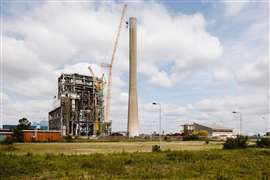Professional duties
24 April 2008
In Last Month's Article We reviewed the current state of the construction and engineering market in the UK, the challenges facing the industry and the opportunities these create for firms outside the UK to enter the market.
This month we review three particular construction law cases over the past 12 months that have examined the responsibilities and legal duties of particular professionals in the construction process. These responsibilities and duties concern different forms of procurement and types of contract used on projects throughout Europe.
The first case concerns the duty of the engineer under the ICE conditions of contract. Under this form, disputes between the employer and the contractor are referred to the engineer for initial resolution, before they can be passed to arbitration or litigation.
A recent case that considered the duty of the engineer when carrying out this role was between Amec Civil Engineering Limited -v- Secretary of State for Transport. The case arose because the Secretary of State needed to refer to arbitration a claim for allegedly defective work before it was limitation time barred.
This meant the Secretary of State had to refer a claim to the engineer and receive his decision in a very short period. The Secretary of State did so and the engineer reached a decision without having given the contractor the opportunity to address the engineer on the issues.
The contractor objected on the grounds that the engineer, in coming to his decision on the dispute, should have followed the general principle of fairness and natural justice. Unfortunately for the contractor, the English Court of Appeal did not agree.
It held “the rules of natural justice are formalised requirements of those who act judicially. Compliance with them is required of judges and arbitrators and those in equivalent positions, but not of an engineer giving a decision under the ICE conditions”.
As a result, the engineer's decision was valid and the Secretary of State's arbitration was not time barred.
In a similar vein, the UK Courts were called upon in May 2005 to consider the nature and extent of the project manager's duties under the ECC form of contract. This case related to construction of the Channel Tunnel Rail Link.
In particular it concerned the duties of the project manager when considering whether to disallow costs under the cost reimbursable form of this contract. The parties to the case were a joint venture between several large contractors (known as Corber) and Bechtel, which was essentially acting as the project manager.
The contractor had obtained evidence that Bechtel had directed its staff to disallow as much cost as possible. The contractor contended the project manager, in carrying out its role of certifying payments and disallowing costs, was obliged to act impartially and with good faith, rather than as the employer's agent and in its sole best interest.
Although the court was unable to give a definitive answer, essentially the judge agreed with the contractor. The judgment is therefore a persuasive authority that a project manager under an NEC form of contract must act impartially in matters such as assessment and certification, as must an architect under a traditional form of building contract.
The last important decision concerning the legal duties of professionals concerns the construction management form of procurement. The case involved the refurbishment of the Great Eastern Hotel in London, where the construction manager was John Laing Construction Limited.
In this case, the court considered the nature and extent of a construction manager's obligations and the level of reasonable skill, care and diligence required in managing the trade contractors and, in particular, in the reporting and management of delays. In this case, the construction manager was held liable for the delays suffered to the project.
This case serves as a warning to construction managers who may have considered that risks of time and costs under this form of procurement remain with the client. If a construction manager fails to take a proper level of reasonable skill and care in managing and reporting delays, he can find himself liable for damages for delay similar to those that would have been awarded against a traditional contractor operating under a traditional form of main contract.
What all of these cases illustrate is the vital role professionals play in the success, or otherwise, of any construction and engineering project, and the importance of understanding the exact extent of their legal duties and responsibilities.
STAY CONNECTED


Receive the information you need when you need it through our world-leading magazines, newsletters and daily briefings.
CONNECT WITH THE TEAM










